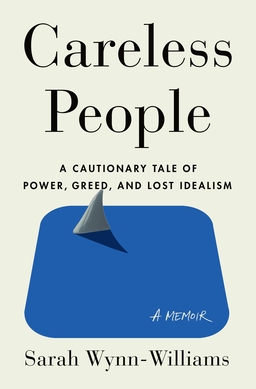Book Review: Careless People by Sarah Wynn-Williams

Listening to the audiobook of Careless People was both an enlightening and deeply disturbing experience. It is a 13 hour long listen — yes — but absolutely worth every hour. Sarah Wynn-Williams delivers a thoroughly researched, incisive, and unflinching account of her time at Facebook (now Meta Platforms), and she spares no detail in exposing the scale of manipulation, ethical breaches, and social harm that many users only suspect in passing.
I had always thought Facebook was a morally compromised company — the “ethical” part has always been murky. But the book shows, with chilling clarity, just how extensive the company’s deceit and ambition were — from exploiting vulnerable young users, to enabling genocide in Myanmar, to pursuing access to authoritarian markets like China while misleading investors, regulators and the public.
A few of the standout (and alarming) revelations:
- Wynn-Williams recounts being terminated from Facebook in 2017, in her view as retaliation after she filed a sexual-harassment complaint against her then-manager at Facebook. She alleges that after making the complaint, the atmosphere toward her at the company changed and that her firing was linked to her whistle-blow.
- She documents patterned misconduct involving senior executives, including allegations that senior management ignored or even enabled a culture in which complaints were dismissed or undermined.
- She argues that Facebook helped shape the political outcomes of national elections: she writes that internally Facebook staff believed “the more that politicians are indebted to Facebook, the better it is for us.”
- She raises alarming allegations regarding Facebook’s attempts to work with the Chinese government — including building or offering censorship/surveillance tools, modifying its algorithm or offering special access in order to gain access to the Chinese market. According to her, Facebook was willing to compromise user data, privacy, and even democratic values in the process.
- The book also illustrates the role the company played (or failed to prevent) in the genocide against the Rohingya in Myanmar — Wynn-Williams writes that Facebook’s moderation systems, language & region staffing, and internal priorities were so weak (or indifferent) that the platform enabled real human-harm.
- She also mentions that Facebook deliberately targets young people at their most vulnerable moments to pitch them personalized advertisements, for example, beauty care or fitness products, to young girls who might be feeling insecure about their physical image.
My take & implications
This book is an eye-opener for many people. It confirms many speculations in the tech industry and among privacy/ethics advocates. It forces us to revisit the default assumption that “social media is inevitable” or “we must have Facebook (or its sisters Instagram/WhatsApp)”. In my view: Facebook and its related products are not a necessity for the majority of people — and the sooner users realize this and minimize their usage, the better off both society and individual well-being will be.
Wynn-Williams writes with both insider access (she worked at Facebook from ~2011 to 2017) and with hindsight — this dual lens gives the book weight. At the same time, the level of detail and sheer breadth of allegations mean that some parts inevitably rest on interpretation, internal memories, and anecdote rather than fully public verified documents. Indeed, Facebook/Meta dispute many of her claims.
Still — even if one takes the claims with a grain of caution — the book raises critical questions:
- What happens when a company becomes essential to political campaigns, global information flows, and personal identity, while operating with minimal external accountability?
- What are the downstream costs of growth-at-all-costs in tech platforms whose metrics reward engagement without fully pricing in harm?
- How many of us need to rethink our relationship with a tool that was never strictly necessary for our daily lives, but has become ubiquitous?
This is a gripping, necessary read/listen. It’s at times discomforting, anger-inducing, and thought-provoking. It changed how I see Facebook (and by extension other big social platforms) — not simply as flawed, but as structurally dependent on harms we rarely see. If you care even a little about digital ethics, democracy, personal data, mental health or corporate accountability — this book has something essential to say.
Feel free to write to me at rohit@rohitfarmer.com